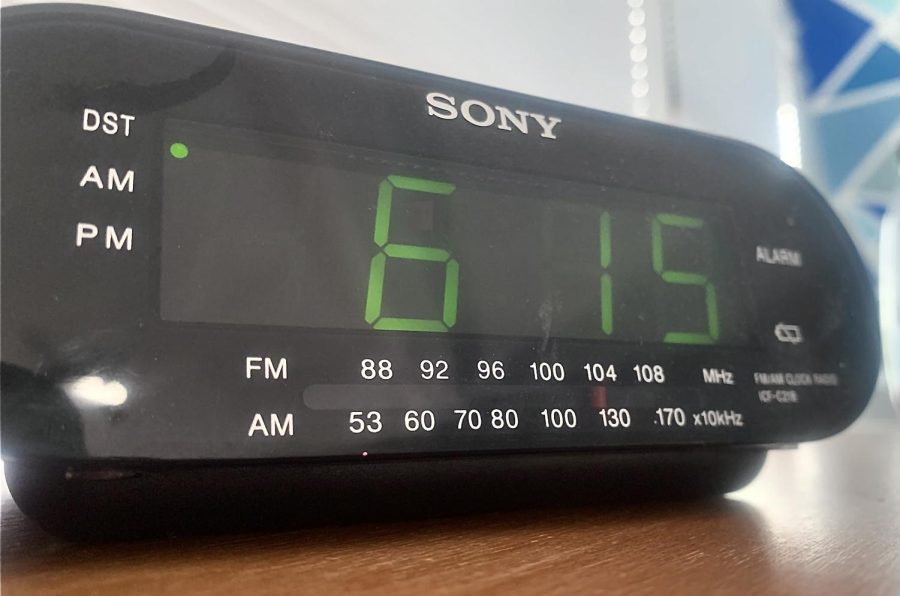Too Early to be a Good Morning!
A 6:15 wake up via alarm clock is what some students will face 5 days a week.
Sleep has a significant impact on everyone’s mental, physical, and emotional health, and it needs to be taken more seriously. As a school district, Hamilton-Wenham should recognize the impacts of getting enough sleep and change the high school’s start time accordingly.
Healthline.com states that sleep renews energy, helps people process information from their day, store memories, and assists in problem-solving and decision-making.
On the flip side, sleep deprivation’s impacts include: sleepiness, irritability and mood swings, and diminished immunity to disease; it can make immune systems weaker, cause shortened attention spans/moments of inattention, memory trouble, and slowed thinking.
According to Sleep Foundation.org, teens need more sleep than adults because their brain is still developing. Journal of Clinical Sleep Medicine recommends that teenagers, between the ages of 13-18, sleep 8-10 hours a night to function properly and secure the best health possible.
Lack of sleep has serious impacts on all people but research has shown that the impacts on teens can be huge in social and nonsocial contexts.
After considering its great importance it might be easy to tell a teen to go to bed earlier, but the typical sleep cycle for teenagers is 11 pm to 8 am. For many teens trying to go to bed earlier often leads to staying up and still falling asleep at the usual time, it just does not work because the circadian rhythm does not line up with the early bedtime.
Imagine a teenager at HWRHS wants to get 8-10 hours of sleep a night but cannot fall asleep until 11 pm because they have homework and extracurriculars. Taking into account that school starts at 7:40, they should arrive around 7:30, that might mean leaving their house around a little after 7, some buses get kids as early as 6:50 am. This means they need to get up at 6 or 6:30 to get ready for school.
In this example, the teenager is getting 7 hours and 30 minutes of sleep. That assumes that the teen actually falls asleep right at 11 pm which is unlikely. If it takes 30 min to fall asleep, that would be 7 hours, which is still 1 hour less than the minimum recommended sleep.
Another problem with this is that waking up at 6 am is two hours before a teenage body is supposed to wake up, interrupting essential hours of sleep crucial to making memories and processing information.
The CDC has found that trying to force teens to go to sleep earlier is not as effective as molding teens’ schedules around the healthy sleep cycle they need: a later bedtime and a later start time.
To provide teens a healthy sleep cycle, Hamilton-Wenham Regional High School should shift the start time to after 8 am, ideally to 8:30 am, the time recommended by the American Academy of Pediatrics. This means extending the day to about 3:30.
Considering all the positives to changing the start time and the negative effects of leaving it the same, the school should consider this a top priority for discussion. If you would like to see a change to the start time, you can reach out to the Hamilton-Wenham School Committee and the district leadership team to let them know how you feel.
Sophie Keys is a senior at Hamilton-Wenham Regional Highschool and a student journalist for the General Consensus. She’s taking a journalism course...







